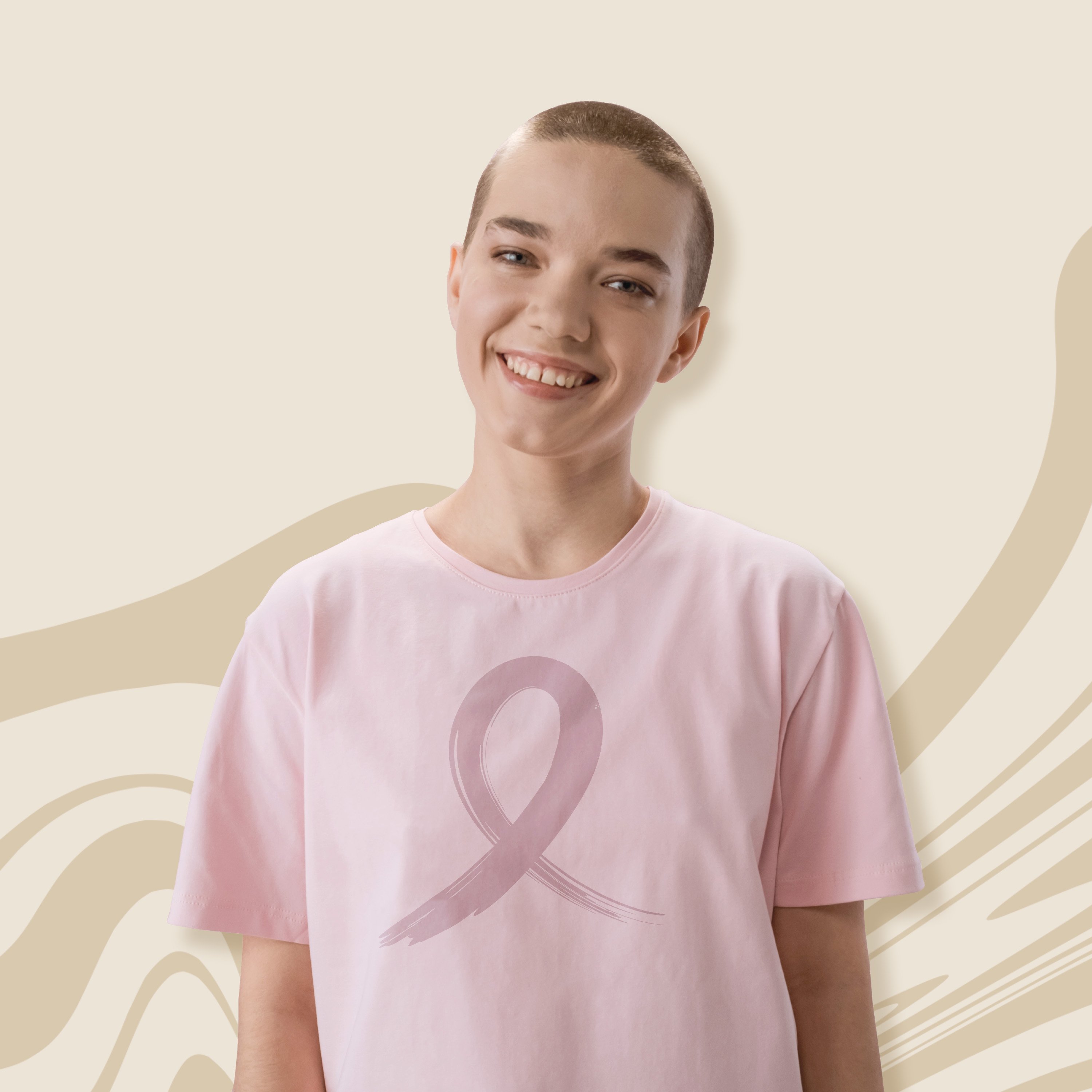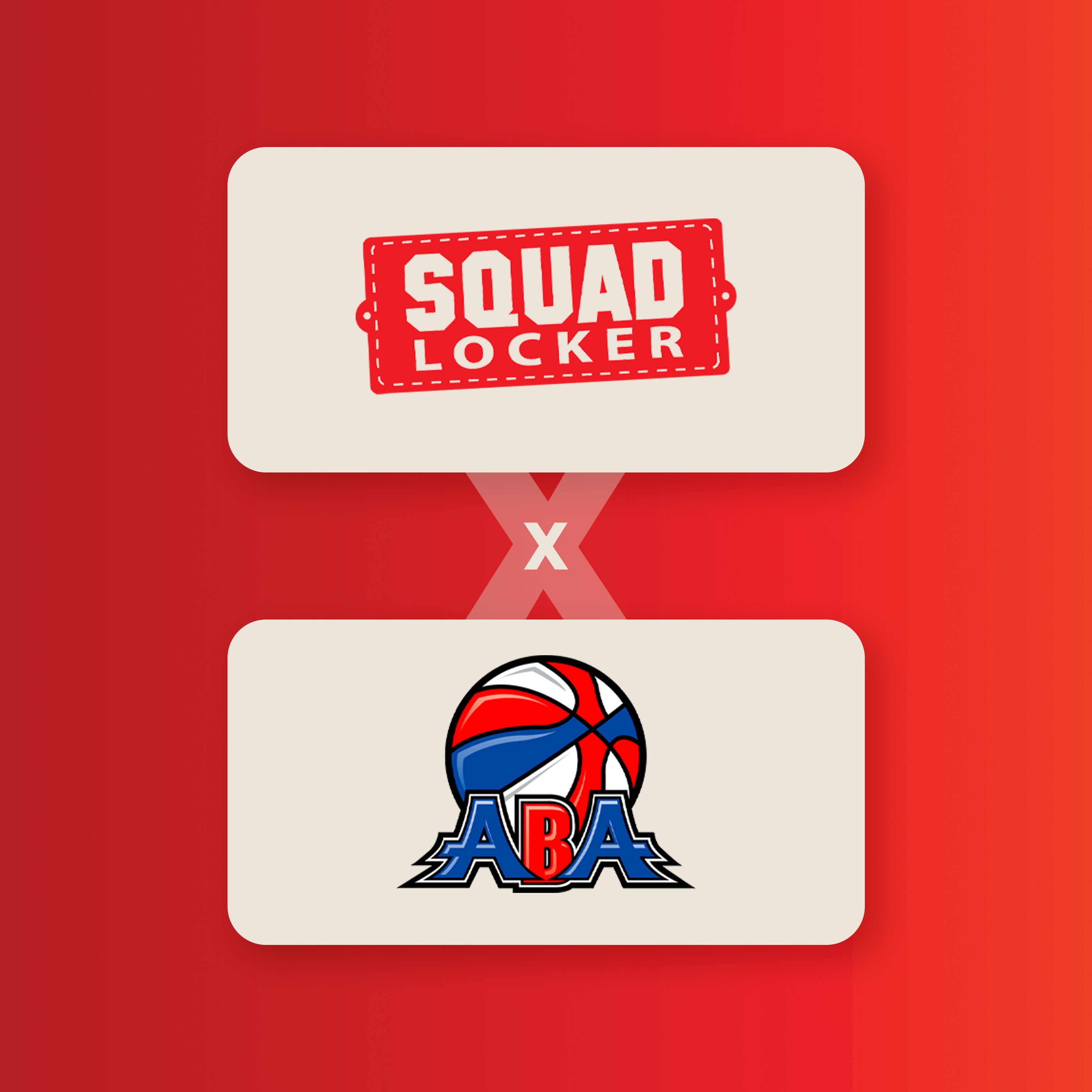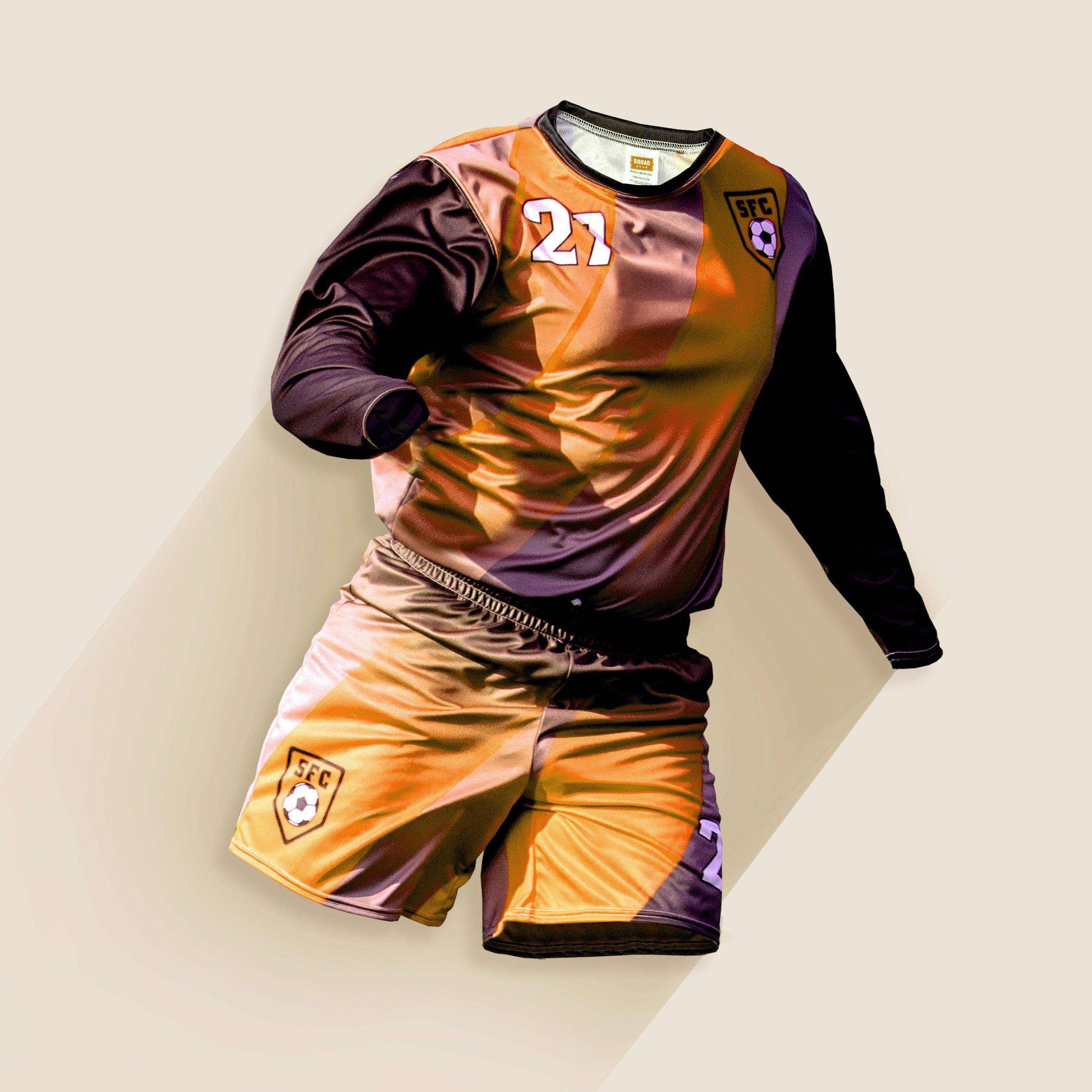How do you create a community where mentors lead change and people feel loved?
One man found a way with a long skinny racket and a small rubber ball. Founder & CEO at SquashBusters, Greg Zaff is changing the world through squash — the sport, not the vegetable.
On this episode of the On the Whistle podcast, Greg and I talk about making squash accessible.
We discuss:
- A brief history of squash and how you play the game
- How Greg got the idea for SquashBusters
- The power of squash to transform the lives of less privileged kids
- …And how you can help close the opportunity gap
Listen Now
Read transcript
Gary Goldberg:
Welcome everybody to On The Whistle, where we explore the relationship between mentorship and youth sports and the connection between the two. Today I'm super excited to have on our show, Greg Zaf, founder of SquashBusters. Greg is coming to me currently during the COVID crisis from his headquarters up at Northeastern University, they have an incredible facility up there. So we're super excited to have you Greg, and thanks so much for taking the time to connect and today.
Greg Zaf:
You're welcome. Pleasure to be here.
Gary Goldberg:
Great. So Greg, tell us a little bit about the game of squash. I mean, I'm assuming that most people don't know the game and probably have never seen it. And so if there's just a way that maybe you could share with us a way for them to create a picture in their mind about how the games played or how it works, that might be a good starting point for us.
Greg Zaf:
Yep. Well, the easiest way to describe it is it's like racketball, it's two people in a four walled room, each holding a long, skinny racket, not the same shape as a racketball racket, hitting a ball, a rubber ball that's smaller than a racket ball. And the idea is to run your opponent into the ground until they can't move anymore and make the ball bounce twice on the floor before they can hit it back. And that is basically a quick description of squash.
Gary Goldberg:
It's funny you say that because I started playing with my two boys and my daughter, I don't know, 10 or 15 years ago and we got exposed to it and I was running them around. And then I saw this older guy, I was maybe 40 years old, Greg and this guy came in and he had to be 70. He had braces all over his knees and I thought to myself, and a big gut belly, I thought to myself, I'll sweep this guy up. Well, don't you know that he could put the ball wherever he wanted it, into the corners, deflecting, using the back wall. Two minutes into it, I couldn't breathe. He had probably taken three steps and I had probably taken 2000 steps. And that's where I started to understand that this is a lot of chess in the game of squash. It's angles, it's deflection, it's placement and it's extending your arm as long as it'll go without having to use your feet.
Greg Zaf:
You got it. Yeah.
Gary Goldberg:
There's so much math in this game.
Greg Zaf:
That's right. Yeah.
Gary Goldberg:
It's really an incredible game, but it's not a game that everybody just gets to go play because it's watch sport. So it is a game I'm imagining of access. And I'm just curious, you've been playing your whole life, when did you start to play and how'd you get access to it?
Greg Zaf:
Well, it has not traditionally been a very accessible game in the United States, which is precisely the reason I started SquashBusters. It's been a game for privileged people for better than a hundred years. It started in New England and basically, prior to the urban squash movement, if you didn't go to a private school or an Ivy League college or something resembling an Ivy League college. And if you weren't in the business world, when you grew up and enter the work world, you probably would not have encountered much squash. And I was fortunate, I encountered squash at private school. My mother forced me initially to go to private school when I entered ninth grade. And I had been a very serious tennis player. And the school, name of the school is Belmont Hills School, it's right outside of Boston, required you to play sports year round. And so in the winter months, squash became the thing that I learned and committed to.
Greg Zaf:
I would say initially, I didn't really want to do it much. I really wanted to focus on tennis, but I didn't have that opportunity in the winter. So I played squash and I started to compete at it. And by the time I got out of high school, I had really fallen in love with the sport and had gotten pretty good at it. Good enough to play in college, which is where I then continued playing. I went to Williams College a million years ago and played squash there very enthusiastically. And that's how I came to the sport.
Gary Goldberg:
Yeah. And what kind of coaching did you have through that process and what effect did those coaches have on you? Were they just great squash coaches or did they help you take that journey from youth to adulthood in some fashion?
Greg Zaf:
Without a doubt, the latter. They were mentors of mine and they were, I would say, the least important thing they did was teach me how to get better at squash. It was much more about character and growing up and learning about life and seeing the world and learning how to win and lose and compete and struggle and get along and push yourself, as an athlete, but as a person. So, I mean, any sport that works well for a young person does more for the person off the playing field of the court than on. And that was definitely the case with my high school squash coach, a guy named George C. Lee and my college squash coach, whose name was Sean Sloan.
Gary Goldberg:
And kind of student athlete were you? Were you the guy that needed to be pulled by the earlobe to get to the library and to be pulled by the earlobe to clean up his room and keep this order, to show up on time or were you a disciplined kid already who just needed to know the right direction to go?
Greg Zaf:
I was always a pretty disciplined competitive kid and wanted to do well. I certainly wasn't the brightest kid in the class, but I was among the harder workers and I had a talent with racket sports, for sure. Right for many years, starting with the tennis court, I had more talent on a court than I did in the classroom. But I worked very hard at my studies and I did reasonably well, but I was never the shining star of a student, it was much more about hard work to get whatever grades I got. But on the squash and tennis court, this came natural. It might be the only thing I'm natural at, is playing squash and tennis.
Gary Goldberg:
It's nice. So Greg, so you go through college and then I'm assuming like many of us did, you wrap up school and you start to get serious with your life, or at least reasonably seriously. Like I got to form of career, I've got to turn something I'm interested in it to something I want to do for the foreseeable future. What's the transition between college and SquashBusters, Where's that journey?
Greg Zaf:
The transition was that all through my twenties, I was a pro squash player, as a job. So I didn't start SquashBusters until I was 32. So when I got out of college, I basically played squash through my twenties full time and cobbled together enough money to live a meager existence as a single guy in his twenties. So my initial passion was to see how good I could get as a player. And I got pretty good. I mean, this is now back in the 80s and 90s, early 90s, but I rose up to top five in North America and was very competitive. I was doing it full time. But I was pretty clear that once my playing days ended, I was not interested in being a coach or a teaching pro. I really wanted to go into public service generally speaking, but didn't know how or where.
Greg Zaf:
And I ended up, while I was a squash pro doing some things in State government, worked criminal justice division, worked for affordable housing, did a stint with the parole board in Massachusetts, in Boston, all on the side, not a real job, just a job to get experience. And then I went in my very late twenties, I enrolled at the Kennedy School of Government and it was at the Kennedy School in the final semester where I wrote a paper in an entrepreneurship class. And the paper was about starting an urban youth development program with the sport of squash. It was actually called an urban youth development program, bringing squash down from its ivory tower. I hadn't yet called it SquashBusters, but clearly the idea was starting to enter my mind. And it wasn't more than two years after the Kennedy School, which I finished in 1993, that I started.
Gary Goldberg:
It sounds like, and it may not have felt it, but it sounds like you had sacrificed a lot to get to that point. You had been playing hard and not making a lot of money and then figuring out a way to get into public service. So what was your motivation for public service and how did you hear that calling? It's quite different right, than I would say most people who are graduating college and looking for some sort of wealth opportunity. I mean, why public service?
Greg Zaf:
Actually, I don't really think I've ever sacrificed, to be honest with you, I've always done exactly what I've been motivated to do. I think I've made about the least sacrifice of anybody I know my age because I just followed my heart. I played squash because that's what I wanted to do. And somehow could support myself. And I didn't want a life that was about just acquiring wealth, not to say that money doesn't matter, but that wasn't going to be it for me. I was really not wanting to compromise the life I wanted to lead. So I was really on a search to do something that really got me amped up every day. And public service is a very, I knew I wanted some form of public service, but a lot of these jobs are pretty grim.
Gary Goldberg:
Working for the parole board sounds grim.
Greg Zaf:
Well, I didn't want to work in an office setting and I didn't want to work for a big organization and I didn't want change to happen, not at all or very slowly. And so the idea of doing my own thing was right up my alley. I didn't need it to be the biggest thing. And so SquashBusters was, I mean, basically, and it has been for 25 years, my life's passion. So there hasn't been a lick of compromise for me in how to spend my time.
Gary Goldberg:
So let me see if I get the formula, right, urban setting, children who don't have access to the same opportunities as children growing up in different zip codes. Those opportunities, our quality of education, trajectory to college, trajectory to career path, where they maximize who they can be in their own individual potential. So you start to plan this out and you start to think, well, geez, if I can teach them squash and make sure that they have good academic expertise along the way, I know that these special colleges are looking for two things going forward. They're looking to diversify their student population and they're looking for great squash programs like great squash players. And by the way, you've got to be able to do the schoolwork if you're going to come to these better schools.
Gary Goldberg:
So it was your idea to take, to help accelerate that equality and inclusion power curve that happened during the 80s and 90s and early aughts, and to try and set up a path for these kids to get access to these special places, by teaching them the game and squash. Is it as simple as that?
Greg Zaf:
Yes, all of that is true, what you just described, but I would say that the key, those are like the bricks of the SquashBusters house, but there's something much more important that actually is about the success. And that is the relationships and the mentoring and the sense of family and human connection that the program creates. And that's also something that less privileged kids have less of. And that is why it works. It isn't because squash is some magical sport, it's really about human connection and community and a place where kids develop an identity where they feel challenged, appreciated, respected, loved. And so when you create that type of community, whether it's around the sport of squash or tiddlywinks or whatever, it works. And I think that's an important message to stress because yeah, college, getting kids to go to college and the health piece, and ultimately career success are things that we talk about here, they do matter a lot. Leveling the playing field, racial justice, they all matter here a lot.
Greg Zaf:
But you don't get to any of those things just by saying, that's what you're going to do. You have to create an environment that people want to spend a lot of time in and invest in.
Gary Goldberg:
How do you create that environment? You talk about, or at least what I've read on the website, opportunity gap and closing that opportunity gap. And now what you just shared with me is it's just not about financial resources and access to courts. It's also access to caring and love and self-identity, and self-esteem, that sounds like a really complicated formula to build. And it's not one that you can just go get a construction company put together, right? How do you create a community where you have mentors leading this change, where people feel more loved?
Greg Zaf:
Actually, not that complicated at all, because people all want to be a part of a community like that because that's what we all want, no matter where you come from or what you look like. And the way you do it is you spend a lot of time together and you make sure that there are a few words that you're always, that are held sacred, like honesty, kindness, empathy, respect, understanding, these types of words, trust, hard work. And you model that behavior in your own actions and in your program model. And that means that you've got to set up a program where kids are in it a lot, doing it a lot, because if they do it a little, and it doesn't mean anything to them because they're not investing. So it was very intentional that the program started with a three day a week, all school year expectation requirement.
Greg Zaf:
And it's still that way and for some students, particularly in Boston, they do more than three days a week. So what ends up happening, and it starts at the beginning of the middle school and it goes through high school. And then there's a whole college piece, which looks very different because they're out in college. But the idea is lots of time together, caring people, honest people, following through on your word, working hard, this type of thing. And when you do that over and over again, what comes of it is a caring community and people like that. Everybody likes that. And there isn't enough of that in the world. So we happened to do it with squash, but the smartest thing we've ever done is not get too big. And it doesn't mean we don't push ourselves to get more kids in it, but it never, you don't compromise or diminish the dosage piece because that is what builds the community, the values.
Gary Goldberg:
What is your theory of change? So it's pretty audacious, I'm just reading on the website, SquashBusters envisions a world where every young person is provided with the opportunities they need to fulfill their greatest potential. That's pretty audacious statement and challenge. How are you doing with your theory of change and closing that opportunity gap?
Greg Zaf:
You'd have to talk to the kids. I think that generally we're doing really well, I mean, we create, we open up doors of opportunity for kids in a variety of ways. Educationally, athletically, socially, places they travel, broadening the world that they see, community service, connecting them to other people in need, opening up their hearts. We create a theory of change by teaching them about themselves and their own capacity to grow and struggle and succeed and to dream. It doesn't work for every single kid equally well, but no doubt kids have gone to better colleges, have traveled more of the world, have built more friendships, I think have changed their, and this is an interesting question, their views on race and hopefully been inspired to do something about the unjust world we live in. Because there's no doubt there was an intention here right from the get go to bring people of different colors and different economic backgrounds together who basically would otherwise likely, never see each other.
Greg Zaf:
There was a lot around that I think is tremendously important. It's a much harder thing to prove impact what that actually does, not just for SquashBuster kids, but for all the other people. But I think everybody recognizes that that's important and rare. And the Moses Brown situation, I'd like to see another community in the whole city of Providence that on a daily basis is bringing rich and poor kids together to stand side by side, doing the same thing. It just doesn't happen in our world because of the way opportunity parses out and resources, et cetera. Everybody hangs out with the people just like themselves and that's it.
Gary Goldberg:
I got a great quote from you, it says, we do this to even the odds to make society more equal than it naturally is. Right? So that's what you're really getting at. When you're evening, the odds, how do you see that cause and effect, meaning what do you see about the odds that are unfair? How are you evening it out?
Greg Zaf:
I mean, everything, unfair has-
Gary Goldberg:
By the way you laughed a little bit for that question, because it's so silly or so simple?
Greg Zaf:
It's not really simple, but it's so omnipresent. It's so everywhere that when you say, where are things unequal or they're unequal in schooling, they're unequal in environment, they're unequal in housing, they're unequal in sports. They're unequal in health care, they're unequal in job opportunities.
Gary Goldberg:
And injustice.
Greg Zaf:
And injustice. And it breaks out along racial lines, look what's going on in the world. And then racial lines' breakout around financial lines. And the whole thing is way unequal, has been since the founding of the country. So SquashBusters, isn't going to change the entire system, but the idea was to give kids a little boost. And what does that mean? It means ultimately, letting them compete and succeed in a bigger world and get into great schools and access great jobs and grow the inner confidence they need to do anything they want to do among any types of people they need to do it. I mean, I want kids to feel like they can run for president.
Gary Goldberg:
I do too.
Greg Zaf:
And I don't want there to be limits. And the Moses Brown kids are brought up to feel that way. And they're mentored that way from a very young age, by their parents, by their teachers, by their coaches, by people they travel with in the summer, et cetera. And so guess what happens? They start thinking that way as they grow into the world, and then they go and do those things. Well, that's not the same way it is across society. A little story to tell, back in 1996, this relates to Rhode Island. I decided one afternoon that I was going to take the Boston Kids down to Brown, for a little field trip for squash and swimming. This is like two months into the program. And I say in the van, I remember this, how many people have ever been to Rhode Island? And I think maybe about a third had crossed State lines. I mean, and we just assume these things, two thirds of the van was entering Rhode Island, 45 minutes to the South for the first time in their lives. And that illustrates how unfair the world is.
Gary Goldberg:
When you think back about some of the coaches that you've had in your program, or some of the alums who have gone through it, do any of them stand out in your mind as examples of great mentors or any of the kids' stories that you can share that you reflect back on and think, wow, what a journey?
Greg Zaf:
I mean, there are a lot of them. I think one that's really important to highlight is that the program director in Providence, the boss of Providence, Rodney Galvao is a SquashBuster alumni, who grew up in Dorchester, who I met when he was 12 years old in a gymnasium clinic at his school, the McCormick School. And he stayed through the program, loved it, went off to Bates College, played squash there, graduated and started working for us. And initially as the head of squash, middle school squash in Boston, and when Providence opened, he moved down to Providence and he became the program director. But there are many others, many others, police officers, a young woman that's just joining our board who's at Harvard Law School right now, 12 year old girl who grew up in Roxbury, always motivated students that have their own businesses, that work in hospitals, nine alumni on our staff now.
Greg Zaf:
So about a third of the entire staff are graduates of the program, on and on it goes. Kids that have gone to just fabulous colleges, kids that have started, one young man that started also at Bates College, an urban squash program of sorts for Somali and Sudanese refugees living in Lewiston, Maine. He did that because of his experience of squash professor's name is Patrick Williams. He now is a program director at Hawaii in Los Angeles. It's a little bit of a dream come true.
Gary Goldberg:
Yeah. They're beautiful stories.
Greg Zaf:
Yeah. And there are many more of them.
Gary Goldberg:
Greg, when you think back about all the competitions that you played in as a player and seeing all the kids come through your program, what do you think you and they gain more from the win to the losses?
Greg Zaf:
You always gain more from a loss I think as a competitor, a loss is stingy and they should sting more than the wins should feel good. You grow more through adversity than you do through triumph. So I think triumph matters because if you never experienced, so you don't really know that it's out there for you, but you really improve. That's what change is when you struggle. And you have to confront yourself and look inward at the competitor, the human being, the student, the citizen that you are. And so I don't ever like stuff to come easy, the growth is in the tough stuff. And it's also in the tough stuff at SquashBusters, when things are going too well, we got to look in work because there's always ways to get better, always.
Gary Goldberg:
Great attitude. If people are listening to this and they've been through your program, or if somebody listens to this and wants to connect with you, Greg, how can they support SquashBusters and how can they reach out to you? Hey, I want to get my kid in the program or hey, I want to help volunteer or whatever support they can give. What's the best way to reach you?
Greg Zaf:
G.zaf@squashbusters.org or (617) 645-6051, which is my cell phone. Call it any time. And yeah, I mean the whole success of the program relies on people end of story. So we always need people who want to help.
Gary Goldberg:
And if you're hearing this story and you're thinking about the coach that got you through high school or got you through college, or got you through Pop Warner, don't forget that coach, that coach wants to hear from you. So if that string in your heart is getting tugged listening to Greg's inspirational stories about the lives he's changing. Don't forget about the coaches that have brought you through whatever you went through as well, because they're there and they matter and they really change our communities one kid at a time. Greg, thanks so much for being with us today. And it's a spectacular thing that you've done. And as my grandparents would have said, you're a real match.
Greg Zaf:
Yeah. Thanks Gary. Thanks for inviting me on your show.
Gary Goldberg:
It's an honor to have you, tremendous respect for you and your program. Thank you so much Greg.
Greg Zaf:
You're welcome.
Share this Story


.jpg)







